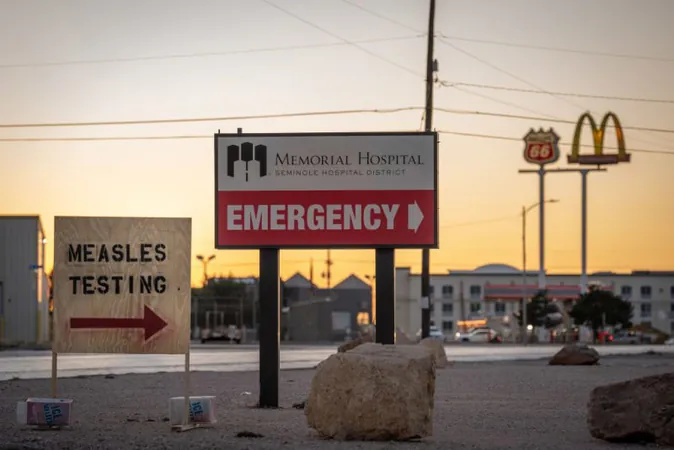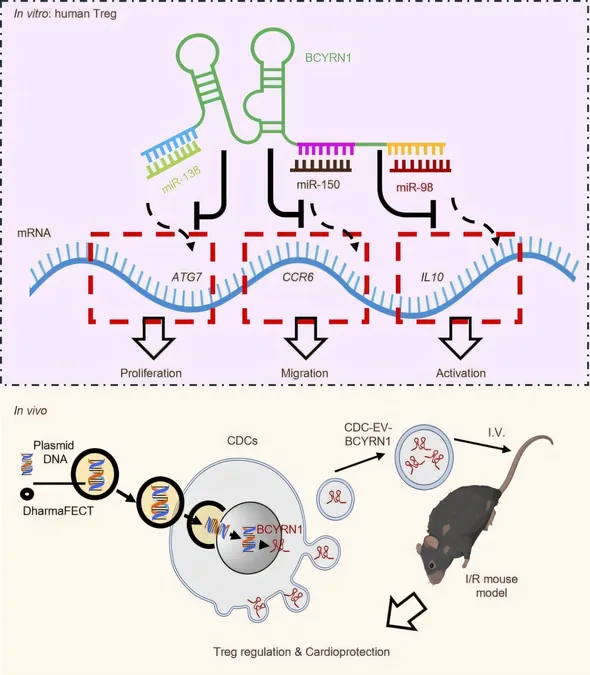
US Faces Potential Loss of 25-Year Health Milestone: Could Measles Return?
2025-03-30
Author: Ming
Potential Loss of Health Milestone
In a shocking turn of events, the elimination of measles in the United States, a hard-won achievement secured since the year 2000, may be at risk. As we approach 2025, current trends suggest this designation could soon change, generating significant concern among health experts.
Insights from Health Experts
Dr. William Moss, a professor of epidemiology at the Johns Hopkins Bloomberg School of Public Health and director of its International Vaccine Access Center, provided insight during a recent media briefing. He explained that “measles elimination status” is defined by a lack of sustained transmission of the virus for at least 12 months. If an outbreak persists beyond this timeframe, the country would lose its elimination status.
Recent Outbreaks
In 2019, the United States came alarmingly close to this threshold, facing a significant outbreak that nearly extended beyond the 12-month mark. Over 1,200 measles cases were reported that year, particularly impacting communities with low vaccination rates, such as certain Orthodox Jewish populations in New York.
This year, the situation is no less grim, with nearly 500 measles cases confirmed so far—and the numbers continue to rise as the Centers for Disease Control and Prevention (CDC) releases updated tallies each week. The most extensive outbreak is currently occurring in West Texas, where the virus has spread primarily among under-vaccinated Mennonite communities. Historical data from previous outbreaks in similar demographics, such as Amish communities, indicate that current trends could lead to a prolonged outbreak lasting several months, or potentially a year.
Concerns and Recommendations
Dr. Moss emphasized the uncertainty around whether the ongoing outbreak, which began in January, will extend beyond the critical 12-month threshold. "I hope that is not the case and we can get a handle on this through increasing vaccination coverage, but it remains a significant threat, and we could potentially lose our measles elimination status if things do not improve," he warned.
History of Measles Elimination Efforts
The journey towards measles elimination started in 1978 when the CDC established a goal to eradicate the virus by 1982. Although this timeline was missed by several years, the United States finally achieved measles elimination in 2000, credited largely to the effectiveness of its vaccination program and regional improvements in measles control across the Americas.
Impact of Vaccine Skepticism
However, vaccine skepticism has surged since the COVID-19 pandemic, raising alarm bells among public health officials. There is a glimmer of hope, though, as early reports indicate that vaccination rates against measles may be increasing again in response to the recent outbreaks in Texas and New Mexico.
Conclusion
As the clock ticks towards a potential reevaluation of America's health status, the public’s role in vaccination uptake cannot be overstated. Increased awareness and proactive measures must be implemented to prevent a regression into a reality where measles is again a prevalent health concern.




 Brasil (PT)
Brasil (PT)
 Canada (EN)
Canada (EN)
 Chile (ES)
Chile (ES)
 Česko (CS)
Česko (CS)
 대한민국 (KO)
대한민국 (KO)
 España (ES)
España (ES)
 France (FR)
France (FR)
 Hong Kong (EN)
Hong Kong (EN)
 Italia (IT)
Italia (IT)
 日本 (JA)
日本 (JA)
 Magyarország (HU)
Magyarország (HU)
 Norge (NO)
Norge (NO)
 Polska (PL)
Polska (PL)
 Schweiz (DE)
Schweiz (DE)
 Singapore (EN)
Singapore (EN)
 Sverige (SV)
Sverige (SV)
 Suomi (FI)
Suomi (FI)
 Türkiye (TR)
Türkiye (TR)
 الإمارات العربية المتحدة (AR)
الإمارات العربية المتحدة (AR)